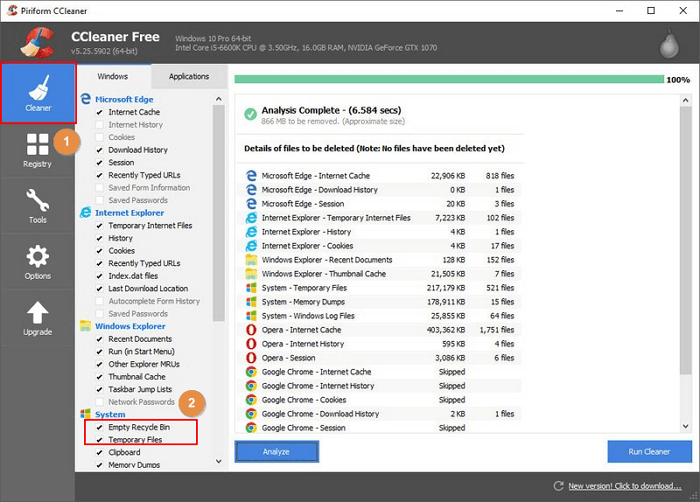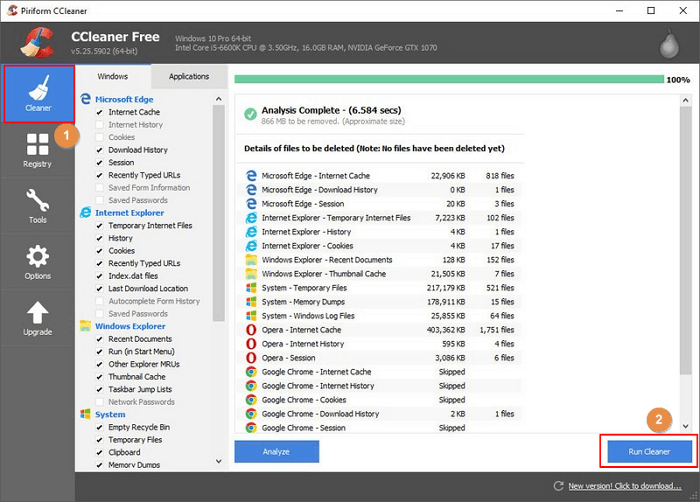How to I Permanently Shred Files? Your Complete Guide Is Here
Do you know that files that were "permanently" deleted by emptying the recycle bin or using Shift + Del keys are all still recoverable? So how can you permanently delete files so they cannot be recovered? Here comes the answer: it's to shred files.
Follow this page, you'll learn a complete guide to permanently shred files in Windows 10/8/7 on your own. Let's start now!
Note that the shredded files can never be restored. So please make sure you have backed up all important files to another secure location before shredding files.
Shred File Overview - What Does It Mean to Shred a File
Normally, in many antivirus software, the feature - shred means to destroy the structure of a target file or document, making the file unrecoverable.
However, in many cases, shred files doesn't mean to destroy a file but to overwrite the file on a hard drive. And this is what most file shredder software doing currently.
In a word, to shred files is a process to permanently delete files, making them all unrecoverable.
So how do you permanently shred a file on your computer or external hard drive? Move to the next part, we'll answer all of your questions.
How Do I Permanently Shred a File
As we mentioned at the beginning of this page, you can't trust "Shift+Del" or Empty Recycle Bin can shred your files. To permanently shred a file, you'll need to turn to a professional file shredder for help.
Check the table here, we picked two top recommended file shredder tools that can help you shred files in different locations on your computer or storage devices for different purposes.
Let's see:
| Where to Shred Files | Recommended File Shredder Software & Tools |
|---|---|
| #1. Shred Files/Folders on Desktop& Recycle Bin | CCleaner |
| #2. Shred Files in Partition - Wipe All Data | Qiling Partition Master |
| #3. Shred Files in HDD/SSD - Erase Disk |
Note that some anti-virus programs can also work to shred files in a specific location. If you are interested, you can run one on your computer and have a try.
Here, to save your time and energy, we picked up two reliable file shredder software to help you with the target. Follow the guide below and learn how to shred files on your own now.
#1. Permanently Shred Files in Folders, Recycle Bin, Dekstop, or Partition
File Shredder: CCleaner
Applies to: Permanently shred a single file or multiple files in a folder, in Recycle Bin, Dekstop, or partition.
How to Use:
Step 1. Click "Cleaner" and check the files that you tend to shred, such as "Empty Recycle Bin", "Temporary Files", etc.
If you don't want to shred some important documents here, you can also uncheck the boxes in the list.

Step 2. Click "Options" > "Include" > "Add" > "Browse" under the Drive or Folder section to select a single file or folder in your computer desktop or hard drive partition.
Click "OK" to confirm.

Step 3. Re-click "Cleaner" and select "Run Cleaner" to start shredding the selected files on your PC.

#2. Shred Files in Partition - Wipe All Data
File Shredder: Qiling Partition Master
Applies to: Permanently shred all existing files in a partition or volume, shred all files and restore SD card or external hard drive to full capacity at one time.
How to Use:
We've set two options for you to wipe data. Choose the one you need.
Option 1. Wipe Partition
- In the Tools and utilities page, choose "Wipe Data".
- In the new window, click the partition you want to erase data from, set the time for which you want to wipe your partition. Click the "Proceed".
- Check the message. Then click "OK" to wipe data.
Option 2. Wipe Disk
- In the Tools and utilities page, choose "Wipe Data".
- Select the HDD/SSD. Set the number of times to wipe data. (You can set to 10 at most.) Then Click "Proceed".
- Check the message. Then click "OK".
#3. Shred Files in HDD/SSD - Erase Disk
File Shredder: Qiling Partition Master
Applies to: Permanently shred all data on a whole hard drive, shred HDD/SSD with all files, erase data and reset hard drive at one time.
How to Use:
We've set two options for you to wipe data. Choose the one you need.
Option 1. Wipe Partition
- In the Tools and utilities page, choose "Wipe Data".
- In the new window, click the partition you want to erase data from, set the time for which you want to wipe your partition, then click "Proceed".
- Check the message. Then click "OK" to wipe data.
Option 2. Wipe Disk
- In the Tools and utilities page, choose "Wipe Data".
- Select the HDD/SSD. Set the number of times to wipe data. (You can set to 10 at most.) Then Click "Proceed".
- Check the message. Then click "OK".
You May Also Like - List Of File Shredder Software & Tools in 2022
Besides the above two recommended file shredder software, there are still many tools that you can apply to shred files. And here is a list of recommended file shredders for you to try in 2022.
List of Referral File Shredder Software & Tools in 2022:
| Anti-Virus | File Shredder | File Shredder Software |
|---|---|---|
|
|
|
To Securely & Permanently Shred Files Is Easy, Follow to Free Up Space on Your Device Now
On this page, explained what does shred files mean, and offered 3 methods with reliable file shredder software to help you shred files on different locations on your device:
- #1. Shred single or multiple files in a folder, recycle bin or Desktop.
- #2. Shred all files in a partition.
- #3. Shred all files in a hard drive or SSD.
As for the easiest file shredder tool, here is Editor's Pick:
- If you want to shred a single file or a folder, try CCleaner.
- To permanently shred a whole partition or an entire hard drive, let Qiling Partition Master help.
After following the above steps, you've successfully shredded files on your storage devices or a local hard drive in Windows 10/8/7. You can save more valuable data to the space that was freed up by shredding files with the above-provided solutions.
Related Articles
- How to Clone WD SSD on Windows 10/11 [Full Guide]
- How to Format Write Protected SD Card [6 Ways]
- How Do I Reset Hard Drive on My Own? Here Is the Complete Guide
- Fix "Not Enough Space on the Disk in Windows Server"